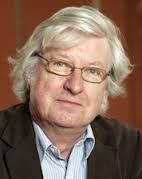
Ciaran Brady, Professor of Early Modern History and Historiography, Trinity College Dublin and the Fall 2017 Naughton Fellow at the Keough-Naughton Institute for Irish Studies, will present the opening lecture of the Institute's Speakers and Public Talks Series.
His theme: "John P. Prendergast and the Problems of History Writing in Nineteenth-Century Ireland."
John P. Prendergast is an important Irish history writer, with The History of the Cromwellian Settlement of Ireland (1863) his most famous work.
For most of his career John Patrick Prendergast was regarded as a foremost proponent of Irish nationalism, and a formidable defender of the Irish people against the aspersions and condescension of English historians in regard to the Irish and their history. His Cromwellian Settlement of Ireland was at once an enormously erudite monographic study and a powerful indictment of English rule in Ireland. In the closing decades of his career, however, Prendergast apparently became transformed into one of the most virulent and implacable opponents of Home Rule and Irish nationalism; yet, the author himself maintained that he was entirely consistent and remained loyal to his original beliefs. Professor Brady’s lecture will attempt to disclose what profound forces underlay this paradoxical position.
This talk is part of a broader theme to be explored in the Fall 2017 term undergraduate course "Writing Irish History," which Professor Brady is co-teaching with Professor Thomas Bartlett, Chair in Irish History at the University of Abderdeen emeritus and the Keough-Naughton Institute's Fall 2017 Patrick B. O'Donnell Distinguished Visiting Professor. That class will trace the course of what Professor Brady calls Ireland's "curious divergence" from a general pattern in Western historiographical culture.
"The nineteenth century marked the high tide of historical writing in Britain's public culture," he says. "By the 1850s the historian as moral philosopher, as political scientist, as cultural critic and as prophet of the future was everywhere celebrated, and large works of history rivalled popular novels on publishers' bestselling lists. At the same time the study of history, once despised in the universities as mere dilettantism, was rapidly establishing itself as a respectable academic discipline. To some degree similar tendencies were discernible in Ireland in the early nineteenth century, but by the second half of the century a serious divergence had arisen over the nature and purpose of historical research between Ireland and Britain. In Britain, the university historians were in the ascendant as the authoritative practitioners of history. But in Ireland the political and cultural critics and free-lance men and women of letters writing for a broad popular audience with frequently conflicting political and ideological purposes continued to dominate history-writing. And, as political and cultural relations between the two countries began rapidly to deteriorate in the early years of the twentieth century, so two very different conceptions of the value of history began to assume an important role at the heart of this process of separation."